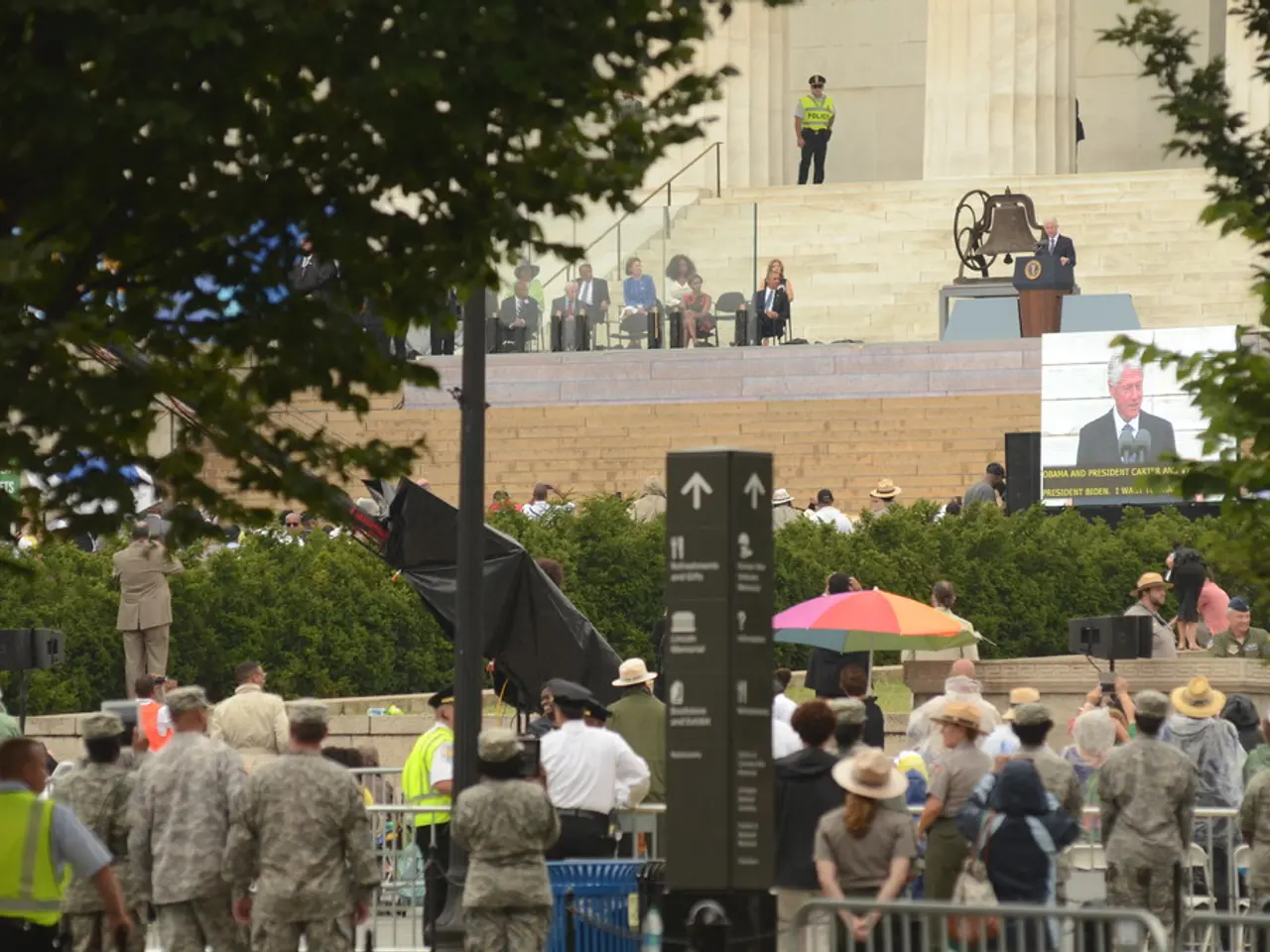International restrictions prevent Abbas from physically attending the UN debate; instead, he will deliver his speech remotely via video link.
The UN General Assembly's annual debate is set to take place next week, with a notable difference this year: the participation of Palestinian President Mahmoud Abbas via video. This decision comes after the UN's highest body granted an exception for Abbas to deliver his speech, due to the virtual format of the event.
Abbas' speech, scheduled for Thursday, follows a diplomatic row with the US, which has been criticized by many countries for its stance on the issue. The US has not issued new visas to Palestinian Authority representatives, including Abbas, citing security concerns. However, the revocation of visas was widely seen as politically motivated.
Despite the US's stance, 145 out of 193 countries, including Germany, voted in favour of the resolution allowing Abbas' virtual address. The US did not vote in favour of the resolution.
The US administration has argued that the Palestinian leadership has not explicitly condemned terrorism, a position that has been met with criticism. The Trump administration has stood firmly with Israel in the Gaza conflict.
Personal appearances are usually the only ones allowed at the General Debate. However, in light of the current circumstances, the UN has made an exception for Abbas. This is not the first time the US has been at odds with the UN over the issue.
The US's decision to deny visas to Abbas and other representatives is not unprecedented. Typically, the US must issue visas to all representatives of countries traveling to the UN headquarters in Manhattan. However, this year, the UN General Debate is scheduled to occur virtually, potentially bypassing the need for visas.
The diplomatic representative denied a visa by the US government and set to participate in the Two-State Solution conference on Monday is the Palestinian President Mahmoud Abbas. Despite the visa refusal, Abbas will deliver his speech at the UN General Debate via video.
The US's decision to deny visas to Abbas and other representatives has sparked international controversy. Many countries view the move as an attempt to silence the Palestinian voice on the global stage. However, the US maintains its position, arguing that the Palestinian leadership has not explicitly condemned terrorism.
This year's UN General Assembly's annual debate promises to be a significant event, with the virtual participation of Abbas adding a new dimension to the proceedings. The debate will provide an opportunity for the international community to discuss key issues and find solutions to global challenges.
Read also:
- United States tariffs pose a threat to India, necessitating the recruitment of adept negotiators or strategists, similar to those who had influenced Trump's decisions.
- Weekly happenings in the German Federal Parliament (Bundestag)
- Southwest region's most popular posts, accompanied by an inquiry:
- Discussion between Putin and Trump in Alaska could potentially overshadow Ukraine's concerns








